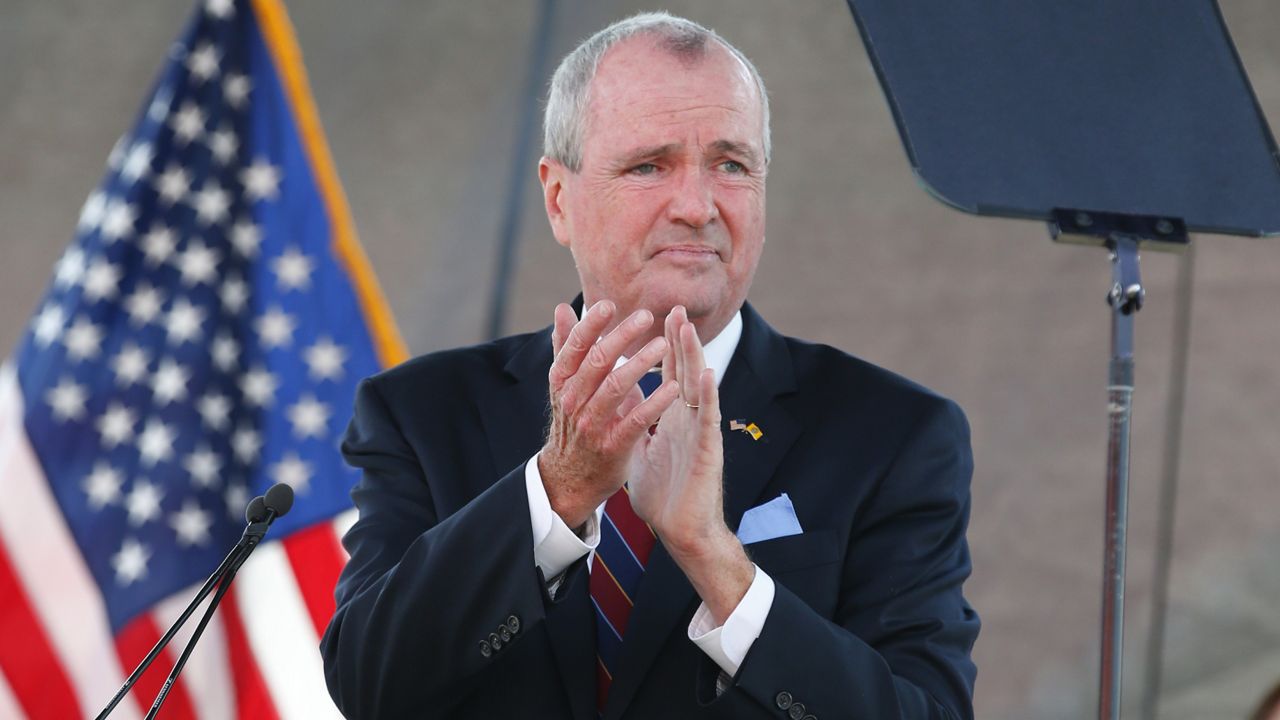TRENTON, N.J. — New Jersey Governor Phil Murphy may soon deliver on a campaign promise he made during his first run for office in 2017: The state’s legislature will vote on a proposal to increase the tax rate on the state’s wealthier residents in the coming days.
The proposal, which was introduced by Murphy alongside Assembly Speaker Craig Coughlin and Senate President Steve Sweeney on Thursday, is almost certain to pass the Democratic-controlled Legislature.
The change would increase the tax on those who make over $1 million per year from 8.97 percent to 10.75 percent, equivalent to the state’s tax rate for those who make $5 million or more per year. The tax is expected to raise about $390 million.
“We do not hold any grudge at all at those who have been successful in life, but in this unprecedented time when so many middle-class families and others have sacrificed so much, now is the time to ensure that the wealthiest among us are also called to sacrifice," Murphy said during Thursday’s press conference.
The proposal also offers a “$500 rebate for families with incomes under $150,000 per couple—or $75,000 for a single individual—with at least one dependent child,” according to a press release.
Governor Murphy had been working on the plan for years—in 2017, Murphy campaigned on a pledge to reinstate the millionaire tax hike, which ended alongside Democratic Gov. Jon Corzine’s tenure in 2010. Senate President Steve Sweeney originally supported the governor’s proposal, but later backtracked after President Donald Trump reversed a deduction to federal property taxes, which Sweeney claimed coupled with the tax hike would put too much pressure on New Jersey residents.
Then came the coronavirus pandemic. In remarks on Thursday, Sweeney acknowledged that the tax hike was the best remedy to help those struggling amid the economic fallout, and thanked his fellow legislators for their compromises.
“I’ve vocally resisted the millionaire‘s tax for years. And it wasn’t a political thing between the governor and me. It was that I had a problem with it at the time,” Sweeney said. “But the pandemic hit and things have changed, and we have to face the reality that a lot of families are hurting here.”
“I want to thank the Governor and the Lieutenant Governor for their openness and their willingness to do this a little bit differently than we thought we were going to do. I am glad to be standing here with my colleagues,” he continued.
Critics of the proposal say the hike will force the state’s wealthy residents to flee.
“Governor Murphy is raising taxes and the State of Florida is the beneficiary. Florida will be sending the Governor a fruit basket with oranges as a thank you gift and we will be sending our citizens, jobs and major companies,” Assembly Minority Leader Jon Bramnick tweeted.
Jack Ciattarelli, a former assemblyman who announced he will run against Murphy in the state’s upcoming gubernatorial race, tweeted that the Governor’s proposal “failed the people of New Jersey,” adding, “we should not be raising taxes on anyone in a state that already pays the highest taxes and suffers from the worst rate of outmigration in the nation.”
The states of New Jersey, California, Connecticut, Maine, New York as well as Washington D.C. have the nation’s strictest tax rules targeting millionaires, according to TurboTax.
New Jersey’s legislature will vote on the proposed tax hike before the September 30, 2020 deadline for the 2021 fiscal year budget. It will take effect on October 1, 2020, according to a statement.



